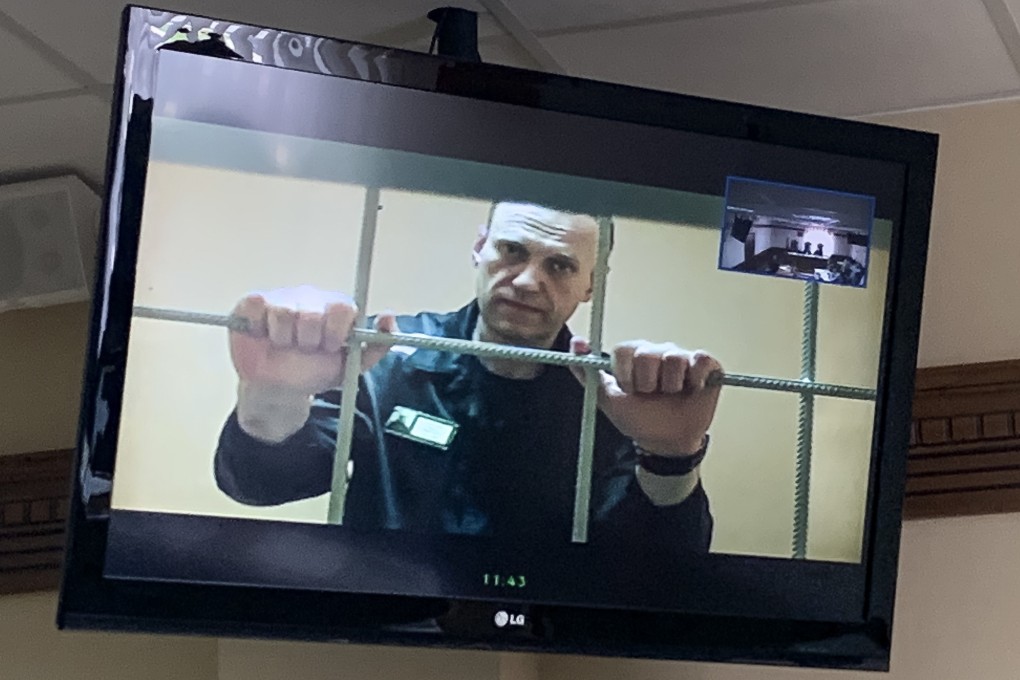Jailed Putin critic Alexei Navalny moved to high-security penal colony
- Russian opposition figure reportedly taken to a penal colony with harsher conditions
- Navalny is serving prison sentence for parole violations, fraud and contempt of court

Alexei Navalny, Russia’s most prominent opposition leader, has been abruptly moved from the prison where he was serving an 11½ year sentence to a high-security penal colony farther from Moscow.
Navalny earned admiration from the disparate opposition in 2021 for returning to Russia voluntarily in 2021 from Germany, where he had been treated for what Western laboratory tests showed was an attempt to poison him in Siberia with a Soviet-era nerve agent. Russia denies trying to kill him.
His chief of staff Leonid Volkov said that when Navalny’s lawyer arrived on Tuesday at Correctional Colony No 2, a prison camp in Pokrov, 119km (74 miles) east of Moscow, he was told: “There is no such convict here”.
“Where Alexei is now, and which colony he is being taken to, we don’t know,” Volkov said on the Telegram app.
But later, regional prison observer Sergey Yazhan said that Navalny had been taken to the IK-6 penal colony at Melekhovo near Vladimir, about 250km east of Moscow.
Yazhan is chairman of the local Public Monitoring Commission, an organisation tasked with protecting the rights of prisoners in each Russian region and working closely with prison authorities.